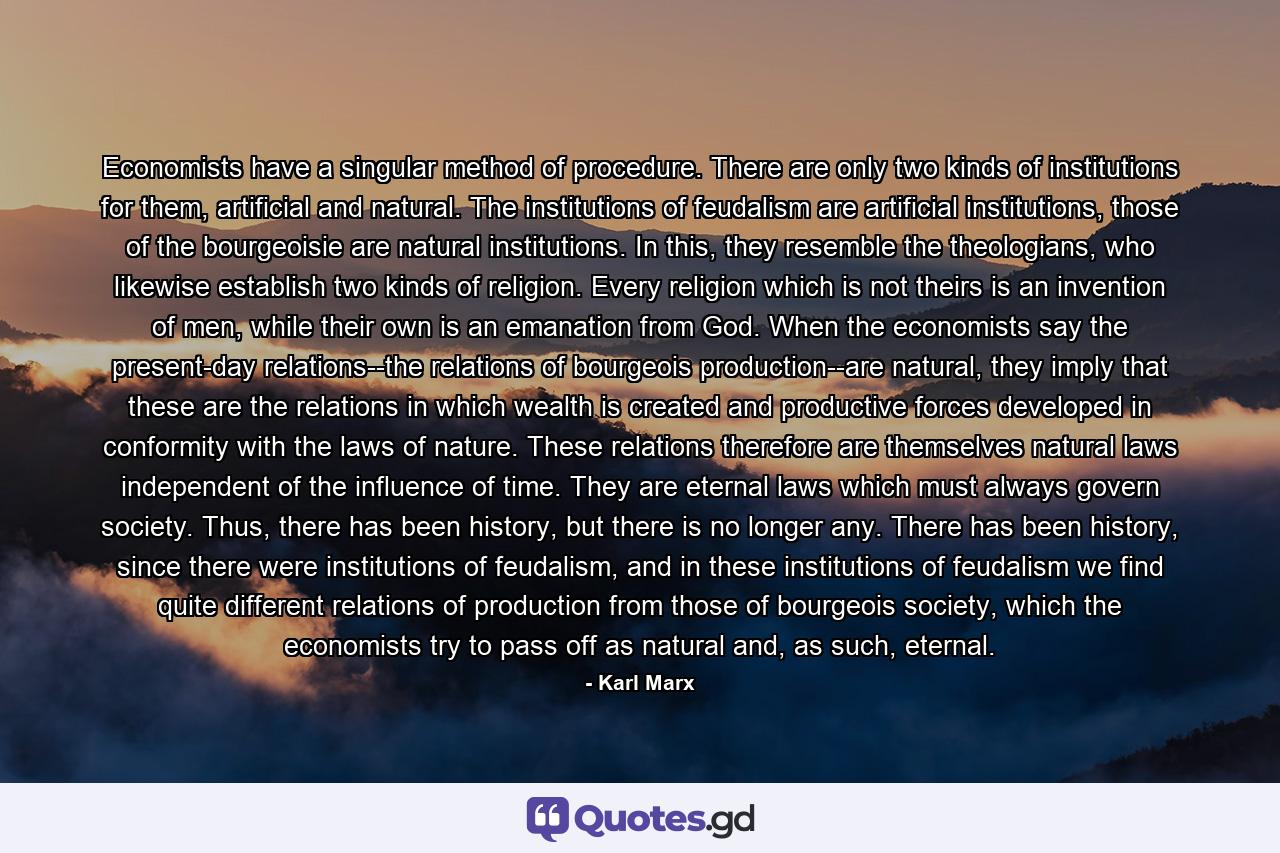Economists have a singular method of procedure. There are only two kinds of institutions for them, artificial and natural. The institutions of feudalism are artificial institutions, those of the bourgeoisie are natural institutions. In this, they resemble the theologians, who likewise establish two kinds of religion. Every religion which is not theirs is an invention of men, while their own is an emanation from God. When the economists say the present-day relations–the relations of bourgeois production–are natural, they imply that these are the relations in which wealth is created and productive forces developed in conformity with the laws of nature. These relations therefore are themselves natural laws independent of the influence of time. They are eternal laws which must always govern society. Thus, there has been history, but there is no longer any. There has been history, since there were institutions of feudalism, and in these institutions of feudalism we find quite different relations of production from those of bourgeois society, which the economists try to pass off as natural and, as such, eternal.
